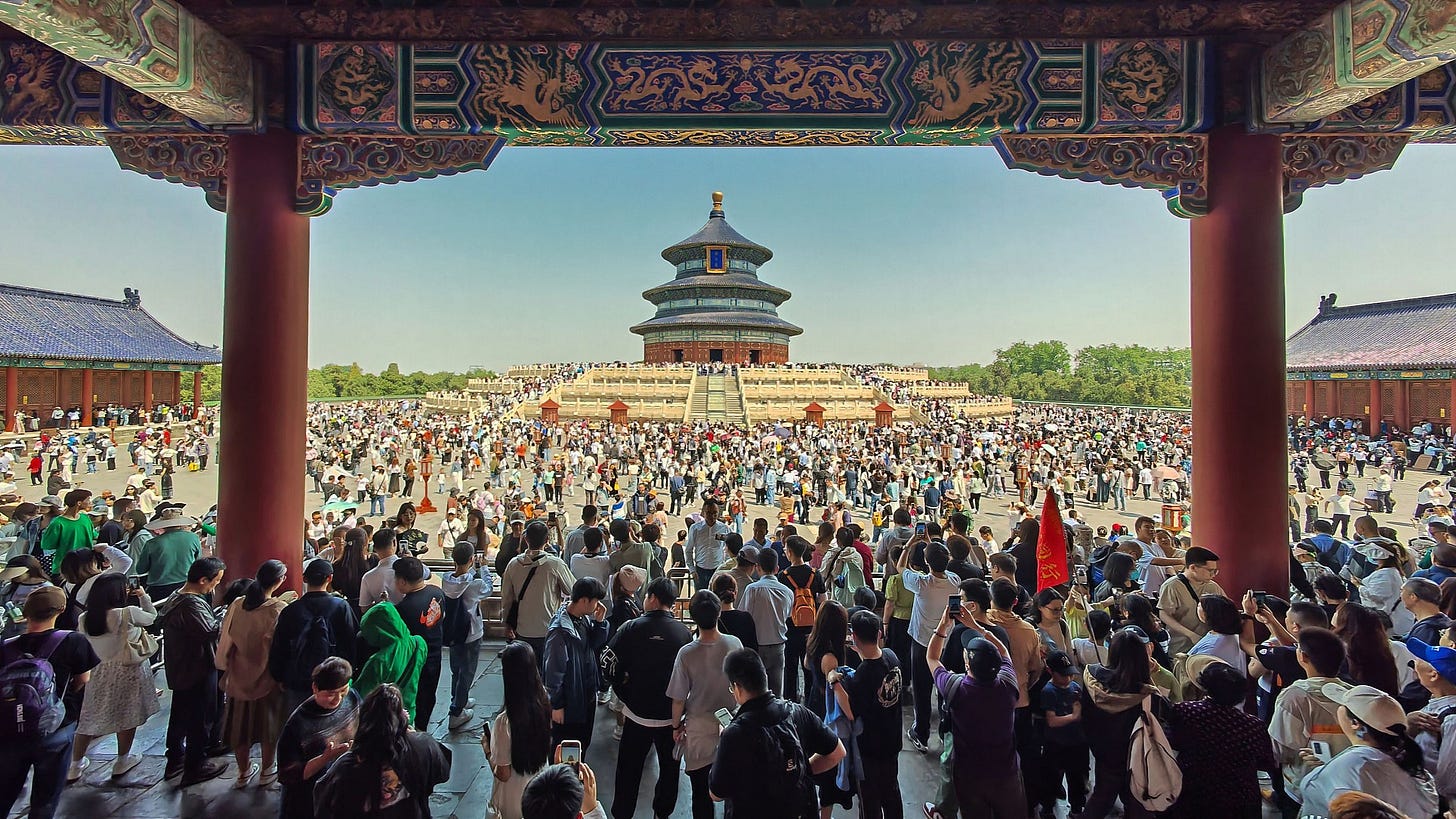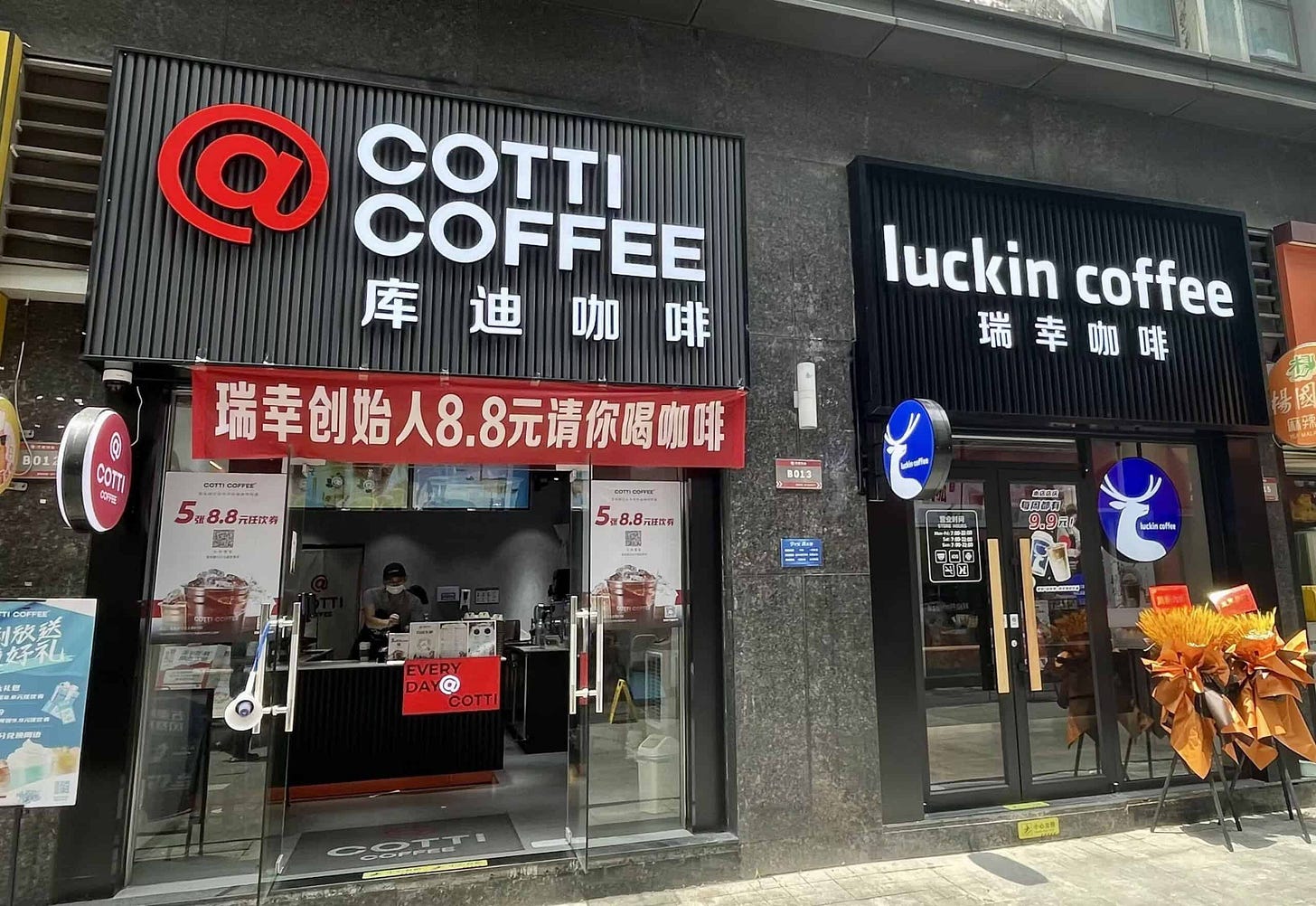China is a country that is changing the world, and in this newsletter, we focus a lot on how this is playing out in the political and cultural spheres. Yet, many of our readers want to come and see China for themselves, so today we have a little guide to the top things you should know about traveling to China.
Get Out of the Big Cities
Only a few years ago I think most Westerners would have struggled to name more than a few Chinese cities. But that is all changing thanks to an influx of content creators producing viral travel videos in previously overlooked (by Westerners) cities like Chongqing and Harbin. Yet, the Chinese countryside is still under-explored by foreign tourists - and they are missing out. From the grasslands of Inner Mongolia to the mountains of Yunnan to the jungles of Hainan, China has some of the most beautiful countryside in the world. This natural beauty is also pretty easy to access - you can easily join a tour group in any of China’s big cities, and they will arrange the transport and accommodation for you. China’s amazing public transport links also mean that, if you want to go yourself, getting off the beaten track is possible even without a car. If you want some inspiration for your next trip to the Chinese countryside, I recommend checking out the China-based YouTubers Little Chinese Everywhere, Harvey in China, and Katherine’s Journey to the East.
Avoid Western brands, Try Local
When traveling to a new country we can often gravitate towards brands we recognize: you might not be able to speak the language or understand the culture, but you know what you are going to get at the Starbucks. But in China, this is a mistake. Western brands will often charge Western prices in a country where the cost of living is considerably lower. If you are searching for a good coffee, for example, a Western brand like Starbucks or Tim Hortons will see you paying upwards of $5, but if you head next door to a local Chinese competitor like Luckin’ Coffee or Cotti Coffee the same drink is going to come in below $1.50. Or say you get a little warm while out exploring the city and want to cool down with an ice cream. The McFlurry from the MacDonalds will set you back around $2, but at the Chinese ice cream giant Mixue, you will only be paying 40 cents. Buying Chinese probably means you are going to save money on your trip. China is also a country where you can find delicious food for very little money. Head out of the mall and into the local area. The little working-class hole-in-the-wall noodle shop will serve you some of the most delicious food you have ever eaten for under $2. If they are making you wait outside on little plastic stools you are probably on to a good one.
Some Of Your Apps Might Not Work - But Others Will
China has strict laws regulating the internet. Some Western tech companies follow these laws but many do not. This means your access to the apps you have come to rely on might be spotty. You will, for example, be able to call someone or host a meeting on Microsoft Teams, but not on Zoom or a Meta app. You will have no problem accessing your Amazon Audible or iTunes account, but you will not be able to watch your favorite YouTuber. If you plan to stay in China for any length of time you will probably want your family and friends back home to download the Chinese app WeChat (basically a combination of WhatsApp, X, and Apple Pay) so they can contact you in an emergency.
Download Some Chinese Apps Before You Come
China has its own internet ecosystem and you will want to download some of these local apps before you come. China has more or less transitioned to a cashless society meaning that paying with the cash you got exchanged at the airport can sometimes cause problems. As such you will want to download the payment app Alipay and link it to your Western bank card. This will allow you to pay electronically at restaurants and in shops. As an added benefit, if the restaurant has an e-menu, the Alipay app will automatically translate it into English for you. Also, download Didi (the Chinese Uber). There is an English version, and it means you will be able to get back home even if you miss the last subway train. The lifestyle app RedNote will also be helpful if you want to research the best travel spots in any location in (and outside) China. Since the influx of Western users at the start of the year the app’s English functionality has really improved.
The Locals Might Get Curious
In much of the West (especially in the liberal cities), there is a bit of a taboo on asking too many questions to the random foreigner you see on the street or sit next to on the subway. This taboo does not exist in China. Expect curious locals to come over to talk to you, practice their English, or take a photo with you. This will be especially true if you head outside the big cities. If you go into the countryside get ready to feel like a celebrity. You can interact with the locals as much or as little as you want. If you don’t have time or don’t feel like talking just politely tell your new friend that, and most Chinese people will leave you alone. On the other hand, if you do have a problem or get lost tell a local. Most Chinese people genuinely want foreigners to have a good time in their country and you will be surprised how far random people will go to make sure that your trip goes well.
A Little Chinese Will Go A Long Way
Practice a little Chinese before you come. The expectation is that, if you are from the West, you will speak no Chinese, so even if you can only say a few simple phrases, the locals will appreciate the effort. Outside the big cities, English proficiency is also pretty low, so being able to ask about the location of the bathroom or for the bill might make life easier for you.
Do you have any more suggestions or travel tips for tourists to China? Be sure to list them in the comments section over on the Substack app!
About the Author
Douglas Rooney: Scottish Christian Socialist. Currently working in Beijing. Writing about China and politics mostly.
Doug’s X page: @doug_rooney
Page Editor: Jin Yulin
Call for Contributors!
I’ve added an “ Op-Ed” section to China Up Close. It’s an open platform I specifically designed to let everyone share their own perspectives with the world. Articles can be related to any topic as long as you’re highly passionate about it! Article length is recommended to be within 700 - 900 words.
If you have an idea for an Op-Ed, contact jjnewsletter@hotmail.com with a brief description of the article's focus.
Jingjing’s Social Media Links
X: @Jingjing_Li YouTube: @Jingjing_Li Facebook: Talk it Out with Li Jingjing
TikTok: @iamlijingjing Reddit: r/NewsWithJingjing Instagram: @jj_ontheroad










Great piece from Doug Rooney, thank you Jin Yulin. Can I suggest you might consider a piece on the new trends in Chinese tourism and specifically when visiting New Zealand. It seems to me Kiwi tourism is still focussing on the old model of organised group bus tours, whereas there has been a massive change in expectations.